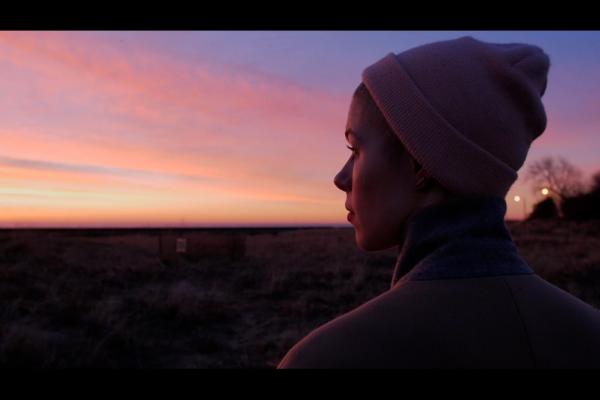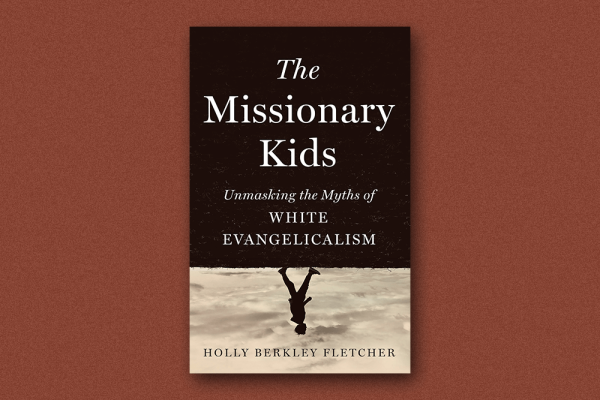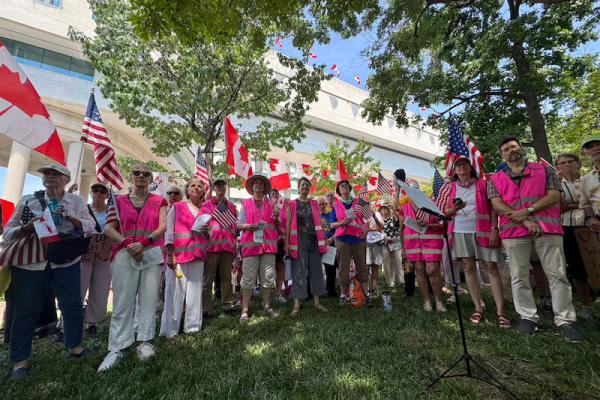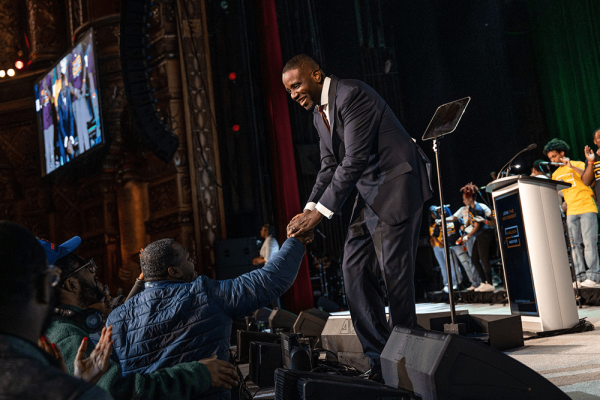When the House passed President Donald Trump’s Big Beautiful Bill Act, House Speaker Mike Johnson gave glory to God.
Johnson, the Louisiana Republican and Christian, believes that his work and the work of the United States are divinely orchestrated. But if the so-called “Big Beautiful Bill” is truly from God, then what are we to make of cuts that negatively impact the most marginalized in our society?
In July, Environmental Protection Agency Administrator Lee Zeldin announced an intention to revoke the Endangerment Finding. This 2009 ruling is the EPA policy that says greenhouse gases harm people—a finding that gives the EPA the authority to regulate climate-warming pollution.
If successful, the revocation would enshrine climate change denial as the official policy of the U.S. government and make it much harder to regulate fossil fuel emissions. The authors of the report cited to legitimize this move are a veritable all-star team of five climate-change-denying scientists, an extreme minority who contract the 97% of global scientists who believe humans are causing climate change. The absurdity is compounded by timing: Zeldin’s announcement came in the midst of the summer “Danger Season” when heat waves, floods, fires, and hurricanes leave millions reeling from weather crises exacerbated by climate change. According to the Union of Concerned Scientists, 98% of people living in the United States have faced an extreme weather alert since May 1, with over half of those alerts exhibiting clear, scientifically established connections to climate change.
“In my ideal society, we would vote as households,” a pastor tells CNN. “And I would ordinarily be the one that would cast the vote, but I would cast the vote having discussed it with my household.”
Another agrees, saying he’d back an end to a woman’s right to vote: “I would support that, and I’d support it on the basis that the atomization that comes with our current system is not good for humans.”
The discussion of 19th Amendment rights was part of a news segment focused on Doug Wilson — a self-proclaimed Christian nationalist pastor based in Idaho — that was reposted to X by Defense Secretary Pete Hegseth. The secretary is among Wilson’s supporters, and his involvement with Wilson’s denomination highlights how a fringe conservative evangelical Christian belief system that questions women’s right to vote is gaining more traction in the Republican Party.
Recently, I saw a clip that claimed to show video game players performing the “first Fortnite baptism.”
Fortnite, for those unfamiliar, is an online battle royale-style game that boasts over a million active players. At its peak, it claimed over 14 million players. In the video, two characters, standing in a virtual lake exchange the questions: “Do you confess that Jesus is your Lord and Savior?” “Will you follow him for the rest of your days?” Followed by a Trinitarian baptism, and exclamations of “Let’s goooooo!”
As I watched this theologically questionable exchange, I started thinking about Riley MacLeod. MacLeod is editor and co-owner of Aftermath, a worker-owned publication dedicated to games journalism and blogging. But I also knew MacLeod was a graduate of Harvard Divinity School and someone broadly interested in faith and social justice.
When Holly Berkley Fletcher was a child, she once heard her missionary parents “literally introduced as ‘Super Christians.’” In a white American evangelical culture that idolizes missionaries in this way, how do we speak honestly about the harm missions too often leave in their wake? In Fletcher’s new book The Missionary Kids: Unmasking the Myths of White Evangelicalism (Broadleaf Books), missionaries’ grown children offer a complex and fascinating perspective.
Fletcher—a historian, former CIA analyst, and missionary kid (MK) herself—draws on extensive research, her own experience as an MK, and surveys and interviews with fellow MKs to present a wide-ranging look at MKs’ experiences. Without losing sight of the noble intentions of most missionaries and the good work that many of them do, she pulls back the curtain on the perceived saintliness of missionaries, uncovering an alarming multitude of systemic harms. In doing so, she exposes key myths at the core of white American evangelicalism itself.
“Have you seen the Sydney Sweeney ad?”
That was the caption of a post on X featuring President Donald Trump on the roof of the White House, shouting down to onlookers about a now infamous American Eagle marketing campaign.
It’s only the latest in an endless parade of very stupid events, most of which are barely worth the time it would take to recap. To boil this story down to the essential points threatens to dissolve the whole affair, but the long and short of is that Sydney Sweeney posed in an American Eagle jeans ad with the tagline “Sydney Sweeney Has Great Jeans.” The campaign launched a small culture war flare-up between those who saw something insidious in proclaiming that a pretty blonde, white girl has “great genes” and those who thought such criticisms were “woke.”
Immigrants are being disappeared. Journalists are being threatened. Protesters are being criminalized. The poor are abandoned. The sick are left behind. Wars still rage. Democracy is crumbling.
The world feels increasingly precarious, and various crises are compounding and multiplying. What moral responsibility do religious institutions—especially seminaries—have at this time?
On Tuesday, President Donald Trump climbed onto the roof of the White House briefing room, saying he was there “taking a little walk,” and surveying the “ballroom on the other side.”
Last week, the White House announced plans for a $200 million ballroom, with hopes for the golden, gilded East Wing to be completed by 2029.
Surprisingly, the Bible has a lot to say about rooftops. In the Hebrew Bible and New Testament, rooftops are a key part of stories where powerful rulers stand and hatch plans to exploit the vulnerable, where God intervenes to encourage inclusive polity, and even in the tempting of Jesus. At other times, the Bible instructs people on how to build their rooftop decks, and roofs are used to ask Jesus to care for others. Rooftop stories show God cares about good infrastructure, accessibility, and safe communities.
Despite what you may have heard about a “muted” response to President Donald Trump’s second term, the size and scope of protests in 2025 have far surpassed what we saw in 2017.
According to data compiled by Harvard political scientist Erica Chenoweth and researchers at the Crowd Counting Consortium, the vast majority of these protests have been nonviolent; in April and May — which included large nationwide protests like Hands Off!, No Kings, and May Day — 99.5% of the protests featured “no injuries, arrests or property damage.”
For the first time in more than 10 years, Detroit will choose a new mayor without an incumbent on the ballot. Among the candidates are a City Council president, a nonprofit leader, a former police chief, and a reverend.
The Rev. Solomon Kinloch gained early traction as a spiritual leader and community-first candidate. Recent polling shows Kinloch in tight competition for second or third place as Detroit heads into a tightly contested primary on Aug. 5.
Kinloch currently leads Triumph Church, a large, multisite congregation with seven campuses and 40,000 members across the region. He has led Triumph Church since 1998 and has stated he intends to retain his pastoral duties if elected. His long tenure pastoring a large church body is part of Kinloch's appeal to be a credible candidate for public office. But that same tenure raises questions among some potential constituents about his willingness to defend the rights of LGBTQ+ Detroiters.









